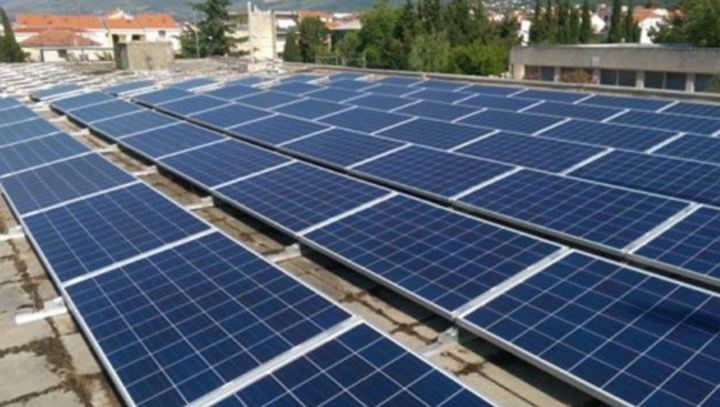The International Finance Corporation (IFC) and Morocco’s OCP have finalized an agreement securing a $106 million loan for the development of two solar plants in Morocco, further advancing OCP’s efforts to boost the production of low-carbon fertilizers in the country.
On October 10, the Office Chérifien des Phosphates (OCP), a Moroccan state-owned enterprise specializing in phosphates and fertilizers, announced a significant partnership with the International Finance Corporation (IFC), marking a significant milestone in their ongoing efforts to support sustainable energy projects in Morocco.
This financial injection aligns with OCP’s overarching mission to increase the production of low-carbon fertilizers in the nation, showcasing their commitment to environmental responsibility. The two photovoltaic plants will be strategically located in the mining regions of Khouribga and Benguerir.

These solar facilities collectively boast a capacity of 400 megawatts (MW), coupled with substantial energy storage capabilities of up to 100 megawatt-hours, emphasizing the focus on sustainable and reliable energy sources.
It’s worth noting that this isn’t the first time that the IFC has extended support to OCP for green initiatives. A prior loan, amounting to 100 million euros, was granted in April, marking the beginning of their collaboration in the pursuit of sustainable energy projects.
This earlier loan was specifically designated for the construction of four solar plants, with a combined capacity of 202 megawatts, also strategically located in the mining areas of Khouribga and Benguerir. These initiatives underscore OCP’s commitment to reducing the carbon footprint and promoting clean energy solutions in Morocco.
As part of OCP’s broader sustainability efforts, they announced an ambitious investment plan in 2022, committing a substantial $13 billion to transition to renewable energies for fertilizer production by 2027. This significant commitment showcases OCP’s dedication to environmentally responsible practices and the reduction of greenhouse gas emissions in their operations.
In a related development, OCP unveiled plans in June to invest a substantial $7 billion in the construction of an ammonia plant. Notably, this facility will leverage green hydrogen, a form of hydrogen produced from renewable energy sources. This demonstrates OCP’s intention to explore and adopt cutting-edge, sustainable technologies in the fertilizer production process.
Context and the Importance of Local Fertilizer Production
The World Bank emphasized the significance of local fertilizer production in Africa, particularly sub-Saharan Africa, as a vital component of addressing the food crisis. The continent currently produces around 30 million metric tons of fertilizer annually, yet approximately 90% of the fertilizer consumed in sub-Saharan Africa is imported, primarily from outside the continent.
The World Bank outlined the critical role of fertilizers in supporting food production and the need for sufficient primary raw materials, such as nitrogen, potash, phosphate, and natural gas, along with the necessary fertilizer production facilities. Access to affordable fertilizers is crucial for farmers in the developing world to ensure healthy crop growth.
The high cost of imported fertilizers has presented a significant obstacle to food production in many developing countries. Reducing fertilizer prices and increasing local production capacity are essential steps toward ensuring food security and agricultural sustainability in the region, as emphasized by the World Bank.
In conclusion, the collaboration between the IFC and OCP, as well as OCP’s extensive investments in sustainable energy and green technologies, reflects a commitment to environmental stewardship, clean energy adoption, and the promotion of local fertilizer production in Morocco and the broader African context. These initiatives are integral to addressing the pressing challenges of food security and agricultural sustainability on the continent.
Support InfoStride News' Credible Journalism: Only credible journalism can guarantee a fair, accountable and transparent society, including democracy and government. It involves a lot of efforts and money. We need your support. Click here to Donate
